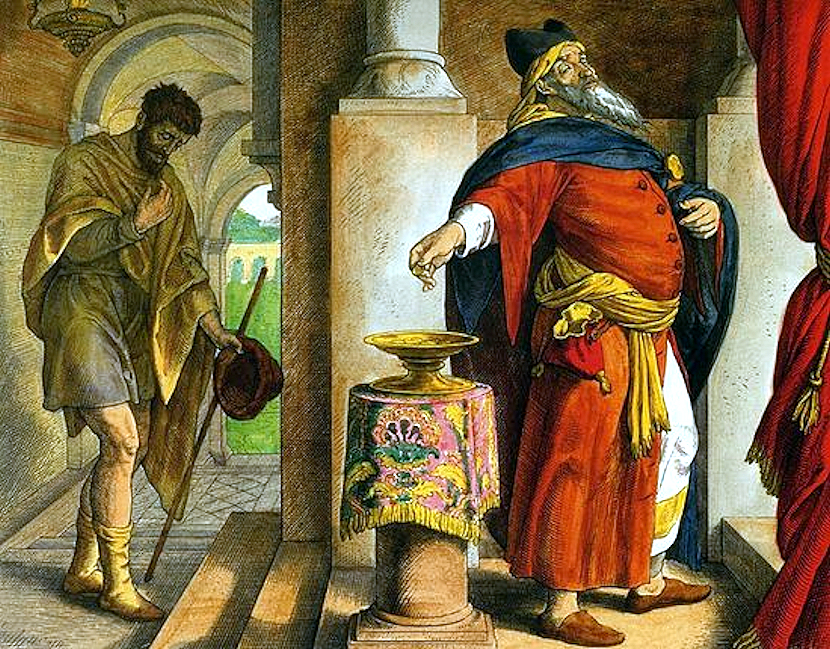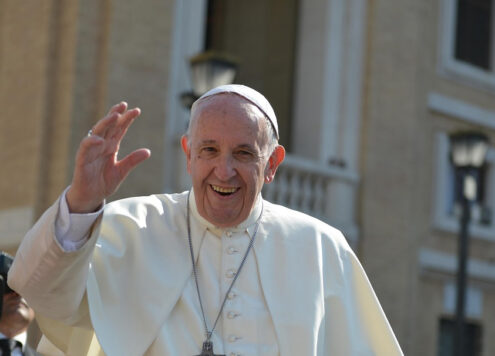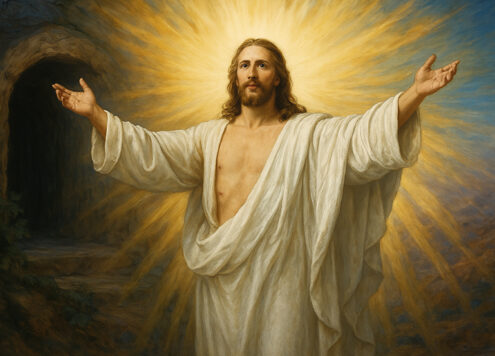—Gospel of Luke, chapter 18 : 9-14
The parable of the Pharisee and the Publican; (Luke 18:10-14) is found only in the gospel of Luke. It follows the parable of the widow and the judge about the need for persistence in praying. This parable, however, goes much deeper and teaches us about the spirit of prayer or even how to pray.
The Pharisee belonged to a religious sect that emphasized the strict observance of the law. You might say he was a walking rule. The Publican, on the other hand, was a tax collector in the employ of the Roman occupying forces, and had a shady reputation for being an extortionist as well as a traitor to his people, the Jews. No wonder, then, the Publican was regarded as a public sinner whereas the Pharisee, who observed all the details of the law, was seen as the very image of perfection.
Jesus could not have chosen two more polar opposites to illustrate His point about the spirit of prayer.
The Pharisee compared himself, not with the Holiness of God, but with others, such as the Publican, whom he despised and condemned. He viewed himself as a great success in life; he trusted in himself, and proudly recounted all of his achievements in observing the works of the law. “I am not greedy, dishonest, or an adulterer” he proudly proclaimed. “I thank you that I am not like that Publican over there. I fast twice a week, and I tithe one tenth of all my income” (Luke 18:11-12).
The Publican, on the other hand, “stood at a distance and would not even raise his face to heaven, but beat on his breast and said: Lord, have mercy on me, a sinner!” (Luke 18:14).
It was the humble Publican who left the temple justified, not the proud Pharisee. “I tell you,” said Jesus, “it was the publican, not the Pharisee, who was in the right with God when he went home” (Luke 18:14).
Why was the Publican justified and not the Pharisee who observed the works of the law? The Publican was justified because he trusted in the mercy of God and not in himself. That is why the Lord declared: “He who humbles himself will be exalted” (Luke 18:14). The Pharisee lacked humility to recognize that righteousness comes from God, not from our own merits or the works of the law. He failed to realize that everyone, including himself, is called not to be successful or boastful, but to be faithful to God’s will. The humble Publican who recognized he was a sinner, and prayed for God’s mercy, had a more prayerful attitude than the proud Pharisee who gloated in his own self-righteousness and compared himself, unmercifully, with “everybody else” (Luke 18 : 9).
Whenever we pray, we need a spirit of humility to forgive others, and trust in the mercy of God. This is the spirit of the Lord’s prayer which Our Savior gave us:
“Forgive us our trespasses as we forgive those who trespass against us.”
—Fr. Hugh Duffy











Recent Comments